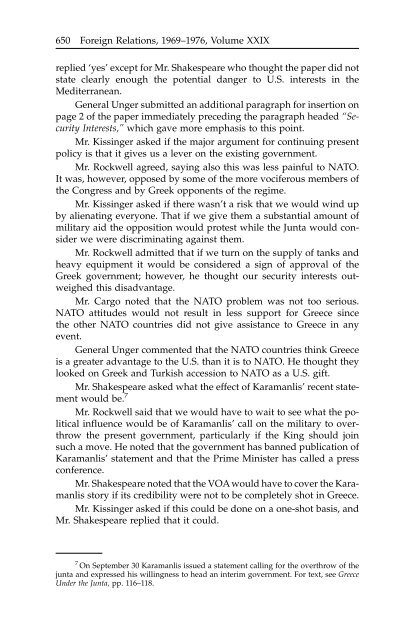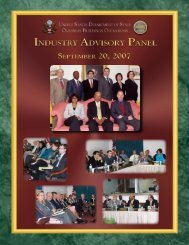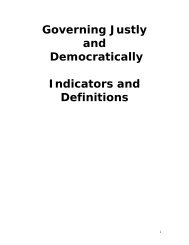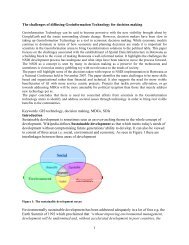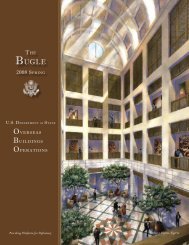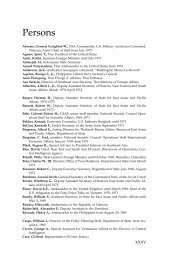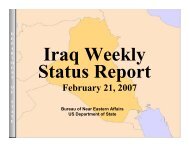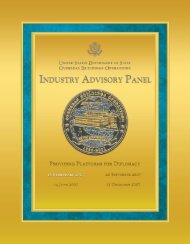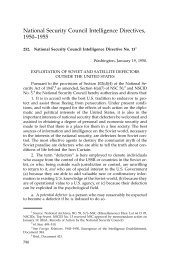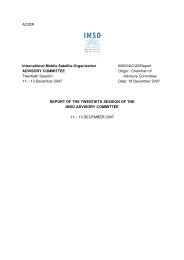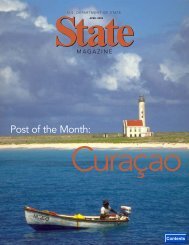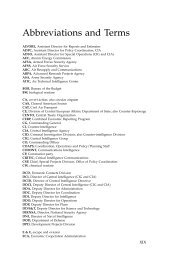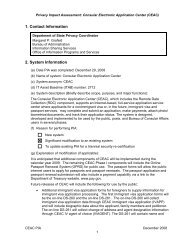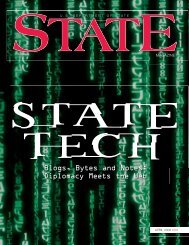Greece - US Department of State
Greece - US Department of State
Greece - US Department of State
You also want an ePaper? Increase the reach of your titles
YUMPU automatically turns print PDFs into web optimized ePapers that Google loves.
650 Foreign Relations, 1969–1976, Volume XXIX<br />
replied ‘yes’ except for Mr. Shakespeare who thought the paper did not<br />
state clearly enough the potential danger to U.S. interests in the<br />
Mediterranean.<br />
General Unger submitted an additional paragraph for insertion on<br />
page 2 <strong>of</strong> the paper immediately preceding the paragraph headed “Security<br />
Interests,” which gave more emphasis to this point.<br />
Mr. Kissinger asked if the major argument for continuing present<br />
policy is that it gives us a lever on the existing government.<br />
Mr. Rockwell agreed, saying also this was less painful to NATO.<br />
It was, however, opposed by some <strong>of</strong> the more vociferous members <strong>of</strong><br />
the Congress and by Greek opponents <strong>of</strong> the regime.<br />
Mr. Kissinger asked if there wasn’t a risk that we would wind up<br />
by alienating everyone. That if we give them a substantial amount <strong>of</strong><br />
military aid the opposition would protest while the Junta would consider<br />
we were discriminating against them.<br />
Mr. Rockwell admitted that if we turn on the supply <strong>of</strong> tanks and<br />
heavy equipment it would be considered a sign <strong>of</strong> approval <strong>of</strong> the<br />
Greek government; however, he thought our security interests outweighed<br />
this disadvantage.<br />
Mr. Cargo noted that the NATO problem was not too serious.<br />
NATO attitudes would not result in less support for <strong>Greece</strong> since<br />
the other NATO countries did not give assistance to <strong>Greece</strong> in any<br />
event.<br />
General Unger commented that the NATO countries think <strong>Greece</strong><br />
is a greater advantage to the U.S. than it is to NATO. He thought they<br />
looked on Greek and Turkish accession to NATO as a U.S. gift.<br />
Mr. Shakespeare asked what the effect <strong>of</strong> Karamanlis’ recent statement<br />
would be. 7<br />
Mr. Rockwell said that we would have to wait to see what the political<br />
influence would be <strong>of</strong> Karamanlis’ call on the military to overthrow<br />
the present government, particularly if the King should join<br />
such a move. He noted that the government has banned publication <strong>of</strong><br />
Karamanlis’ statement and that the Prime Minister has called a press<br />
conference.<br />
Mr. Shakespeare noted that the VOA would have to cover the Karamanlis<br />
story if its credibility were not to be completely shot in <strong>Greece</strong>.<br />
Mr. Kissinger asked if this could be done on a one-shot basis, and<br />
Mr. Shakespeare replied that it could.<br />
7 On September 30 Karamanlis issued a statement calling for the overthrow <strong>of</strong> the<br />
junta and expressed his willingness to head an interim government. For text, see <strong>Greece</strong><br />
Under the Junta, pp. 116–118.


